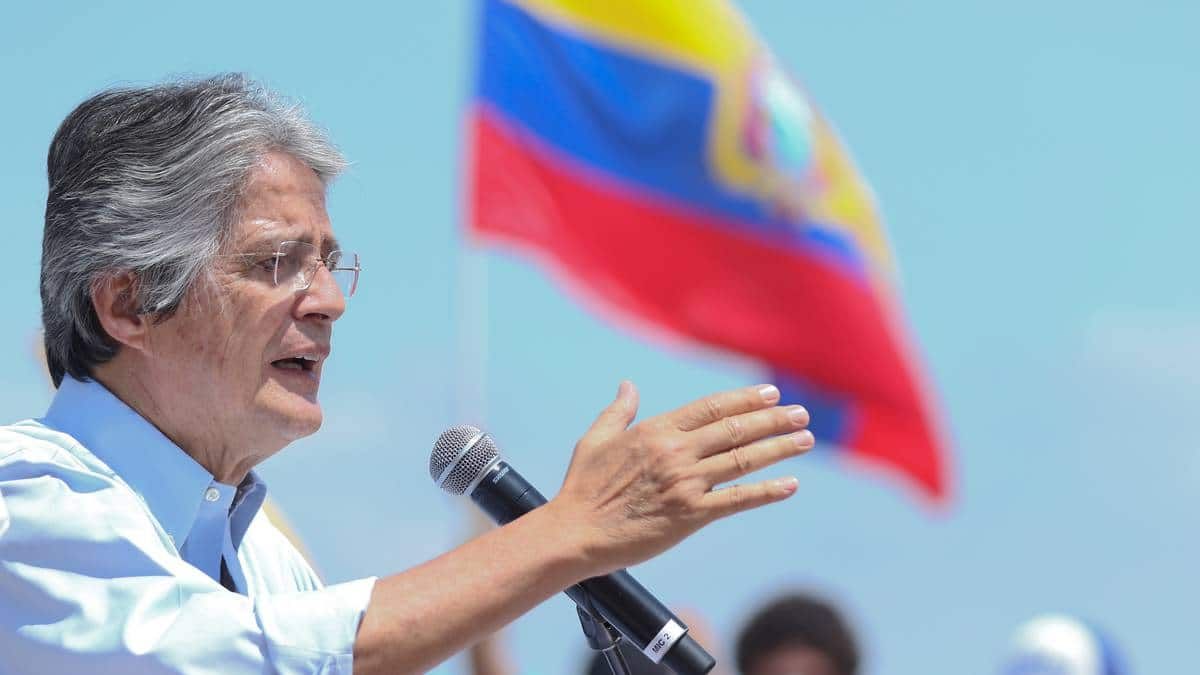RIO DE JANEIRO, BRAZIL – The president of Ecuador, Guillermo Lasso, looks to the first ten economies of the world within a trading strategy that has as a priority the entry of his country to the Pacific Alliance, in line with a vision of Latin American integration that goes through “investment and trade”.
“Our objective is obvious: to sign free trade agreements with at least the ten largest economies in the world. This includes the U.S., China, Japan, South Korea, and the Euro-Asia group”, clarified the president in an interview with Efe on Thursday (8) at the Carondelet presidential palace in Quito.
Read also: Check out over coverage on Ecuador
He summarized his foreign trade policy with the phrase “more bananas in the world means more jobs in Ecuador”, saying that Ecuador’s economy is to a certain extent complementary to that of the United States and China.

“From my point of view, trade and investment are two fundamental elements for a process of integration within Latin America and between Latin America and the world,” he added.
THE PACIFIC ALLIANCE IS A PRIORITY
Since assuming the Presidency on May 24, Lasso, a 65-year-old native of Guayaquil, has traveled abroad four times to visit his neighbors Colombia and Peru, to undergo surgery in the U.S., and recently to Mexico, where he plans to return in two weeks for a CELAC summit.
“My priority is Ecuador’s entry into the Pacific Alliance in order to generate trade and investment opportunities,” said the president, who sees Mexico as a gateway to this regional initiative, which also includes Chile, Colombia and Peru.
Ecuador has economic agreements with these three countries. It is in the process of joining the Alliance, so Mexico’s trade approval, which it hopes to obtain before the end of the year, is crucial for its entry as a full member of this bloc, considered the eighth largest economy in the world.
At the regional level, Ecuador holds the rotating presidency of the Andean Community (CAN), which also includes Bolivia, Colombia, and Peru, a platform from which Lasso’s government intends to give new impetus to trade beyond the political.
“I think that in this direction we should also promote the CAN so that the Andean Community of Nations strengthens these criteria, these concepts of investment and trade”, he stressed.
THE DIPLOMACY OF VACCINES
The President highlighted that during his first 100 days in office, he has been able to carry out “the largest logistical mobilization” of recent times in Ecuador, thanks to the support in vaccines from several countries.
“What has worked is a diplomatic strategy that I called ‘vaccine diplomacy’, which is nothing more than a direct, frontal, permanent contact with friendly countries such as the US, China, Russia, the support of Spain and Canada”, he said.
He detailed that Washington donated around 10% of the required vaccines, while Beijing provided 65%, the main international weight to achieve that 75% of the Ecuadorian population over 16 years old was vaccinated in the first 100 days of his government emblematic electoral promise.
He also stated that he is analyzing the possibility of manufacturing anti-covid-19 vaccines in Ecuador, presumably with the help of China, or Russia, as a second strategic option.
REGULARIZATION OF VENEZUELANS
The President reiterated his intention to regularize the situation of about 450,000 Venezuelans in the country thanks to a plan beyond a migratory measure because it seeks to incorporate migrants into Ecuadorian society through work and education.
“It is a plan that obeys humanitarian reasons, we are working with international organizations, and we are going to ask for help because Ecuador cannot take care of these 430,000 or 450,000 Venezuelans alone,” he assured.
In the social field, he reminded that even though his policies may raise blisters among some sectors, he has the support of 74% of the population (at the end of August) and that his task is to put an end to poverty and child malnutrition that lacerate the Andean nation.
“What we have to do is not what Guillermo Lasso wants for Ecuador, it is not what an indigenous, social or labor leader wants to do for Ecuador,” adding that “what we have to do all together is what is convenient for Ecuador, and it is convenient to achieve great economic growth to be able to lift out of poverty that 34% of Ecuadorians.”
Before some analyses that point out that the pandemic has caused a social crisis in Ecuador that could derive in a massive exit of Ecuadorians abroad, Lasso considered that the current situation “is different than the one at the beginning of this century.”
“We have to stick to the numbers. In 1999 and 2000, migration exceeded 500,000 Ecuadorians going abroad. Now, in the case of Mexico, there is talk of close to 70,000 Ecuadorians who tried to cross the border with the United States, of which approximately 60,000 have been returned. Therefore, I do not think they (the figures) are comparable,” he concluded.

